AmazingRibs.com is supported by our Pitmaster Club. Also, when you buy with links on our site we may earn a finder’s fee.
Click to see how we test and review products.
BBQ & Grilling Technique, Science, And Mythbusting (12 Pages, 66 Articles)
Published On: 2/14/2019 Last Modified: 12/8/2025
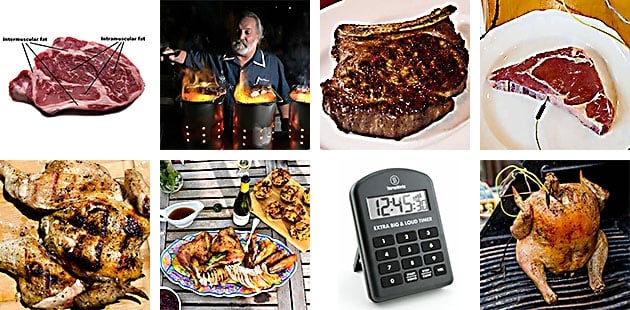
Good cooking needs more than good recipes. The best chefs understand “why” as well as “how” and they have developed tricks and techniques that can make major differences in the outcome. Here is more of the science behind cooking and some of our favorite tips and tricks that make cooking easier, and the outcome better.

Important Weights, Measures, Calculators, Conversions, And Rules Of Thumb
Here are some very useful weights, measures, and equivalents that come in handy in the kitchen. Click here to read.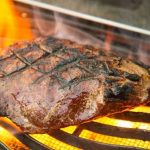
The Thermodynamics of Cooking and How Different Cooking Methods Work
Learn about thermodynamics: the basis of all cooking! Find out how heat transference works in your grill, bbq, and smoker.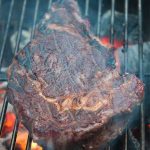
Cooking Hot And Fast, Low And Slow, And The Reverse Sear Method
What is the right cooking temperature for barbecue? It depends. Not all food should be cooked low and slow or hot and fast.Grill And Smoker Setup And Firing Up (1 Page, 18 Articles)
What's the best way to set up your grill and smoker? The secret is to have temperature control. Click here to learn more.Salting, Brining, Curing, And Injecting (3 Recipes, 2 Pages, 6 Articles)
Salting and brining can significantly improve your cooking. Don't overdo it. When used judiciously it can seriously amplify flavor.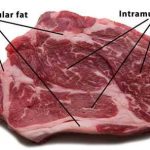
Basic Meat Science For Cooks
What is meat and how does cooking alter it? Discover the science of what meat is made of. And find out what happens when meat meets heat.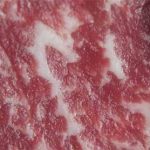
Buying Beef: Beef Grades And Labels, And Busting The Kobe Beef Myth
Grades of beef explained: Choice, Prime, Wagyu, Certified Angus, Kobe, aged, grass fed, grain fed, organic, natural, kosher, and halal.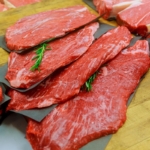
You’re Buying The Wrong Beef—These 7 Cheap Beef Cuts Give You More Flavor For Less Money
Beef prices are at an all-time high. The good news is that you can save money and eat better with cheap beef cuts. Surprise! Cheap beef cuts tend to be more flavorful than the expensive cuts. They just take some care in cooking. Our recipes show you how to cook them right.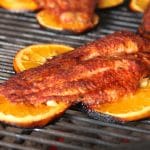
12 Genius BBQ and Grilling Hacks to Save You Time and Money
Here are our favorite outdoor cooking hacks to save both time and money while also creating delicious barbecue!
Meathead’s Top 5 Meat Tips
January is National Meat Month and Americans are eating more meat. Here are our top 5 meat cooking tips from our own bbq whisperer, Meathead.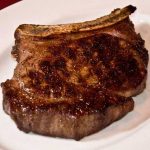
Myth: The Bones Make The Meat Better
"Tender at the bone" is a common phrase in cooking. It leads many cooks to believe that bone-in meat tastes better than boneless. Is it true?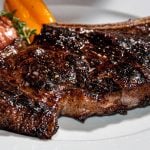
What’s A Proper Sear And Why Grill Marks Are Overrated
Stop trying to get perfect grill marks! Yes, grill marks make us drool, but they are a sign of lost potential.
Extreme Steak: Wild And Crazy Ways To Get A Killer Sear
Here are four offbeat methods for cooking steaks: The Afterburner Method, the Vigneron Method, the Caveman Method, and the Stripsteak Method.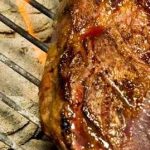
Myth: Searing Steaks Seals In The Juices
Sorry folks: searing meat to seal in the juices is a myth. Here are the facts about meat juices, searing, and a better way to sear your meat.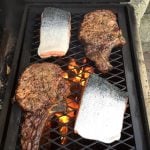
How to Grill and Smoke Everything
More and more people are cooking at home. And more cooks are asking us questions. Luckily, we have the answers.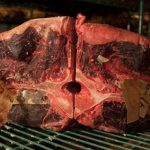
How to Dry Age Steak At Home
If you dry age and wet age beef at home, you can save a lot of money. Click here for all the information you need.
Myth: A Melting Fat Cap Penetrates Meat
The fat on the outside of meat does not melt and penetrate the muscle fibers making the meat moister. That is a myth.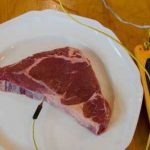
Myth: Let Meat Come To Room Temp Before Cooking
Do not bring your meat to room temperature before cooking it. That is a myth that poses a food safety risky.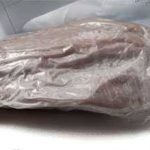
Thawing Meat And Busting The Hot Water Thawing Myth
Here's how to thaw or defrost meat safely. Surprisingly, you can do it in hot water! That method works best for thinner cuts of meat.
How to Remove the Membrane from Ribs: Skin & Trim ‘Em
Removing the paper-thin membrane from the bone side of ribs prior to smoking ensures that the ribs come out as tender as possible.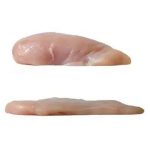
Pounding or Slicing Chicken Breasts for Perfect Even Cooking
Boneless, skinless chicken breasts are among the most popular meats in America. Here's how to make an even piece of meat quickly and easily.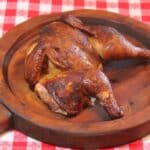
How to Spatchcock and Butterfly Chicken And Turkey
Spatchcocking, or butterflying, a whole turkey, chicken or any other bird is a great way to make moist, delicious birds.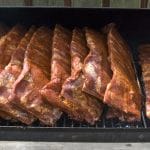
When You’re Cooking More Than One Hunk of Meat
What influences cooking time? So many variables, such as the volume of meat. Here are more tips on cooking more than one hunk of meat at once.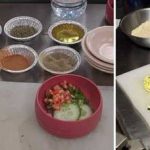
Before You Start Cooking, Mise En Place, Put Everything In Its Place
Want to be a better cook? Learn mise en place. This French term means, roughly, 'everything in its place.'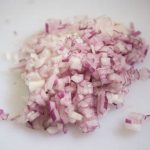
How To Dice An Onion As Perfectly As The Professionals
Check out our handy step by step photo sequence of how to dice onions properly. This is how the professional chefs do it.Everything You Need to Know About Knives (3 Pages, 2 Articles)
Buying a new knife and wondering what to do? Get incisive answers to your sharp questions and more in our ultimate guide to knives.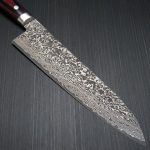
The Science of Knives
Before you drop serious cash on a knife, bone up on what distinguishes a good knife from a great one. Click here for details.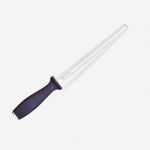
All You Need To Know About How To Sharpen And Hone Knives
Sharp knives cut. Dull knives slip. Stay safe by keeping your knife sharp. Here's a guide to honing and sharpening your knife.
Party Planning: How Much to Cook for a Crowd
So you're cooking for a crowd. How much food do you need? Here's how to plan for a party or special occasion.
Cooking Time – What Influences It?
Why are exact cooking times so hard to predict? Because the actual time it takes food to reach doneness depends on many variables.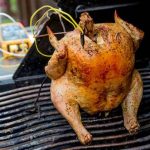
Beer Can Chicken Recipe: There Are Better Ways To Cook Chicken
Beer Can Chicken is not a good way to cook chicken. Read here to learn why, and how you can make better roast chicken.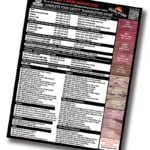
Award Winning Food Temperature Guide And What You Need To Know About Food Safety
Here's the ultimate guide to understanding cooking temperatures and food safety to ensure that your meat is cooked perfectly every time.
Marinade Myths And How To Add Flavor More Effectively
Marinades work on some foods but not on others. A good marinade contains certain ingredients but not others. Here's the truth.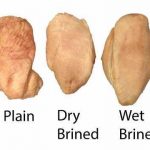
Wet Brining vs. Dry Brining
Salt helps protein hang onto water during cooking so brining is a great technique to make food moist. Get the details.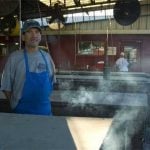
Mythbusting: Basting, Mopping, And Spritzing
There are times when basting helps and times when it hurts. Find out how applying liquid to meat may inhibit the formation of your crust.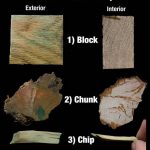
Myth: Soak Your Wood First
There is no need to soak wood before cooking with it. Water doesn't penetrate wood. That's why they make boats from it!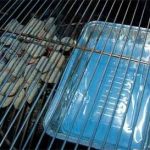
How To Use Drip Pans And Water Pans In Your Smoker Or Grill
Find out here along with tips on indirect grilling and an answer to the question: What should I put in my water pan on my grill or smoker?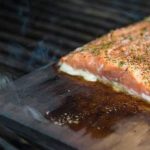
Cooking Fish On A Wooden Plank: Separating Fact From Fiction
Planking is a popular method for cooking fish on a grill. It helps keep fish from sticking to the grill, but the rest is mostly bunk.Sous-Vide-Que Marrying The Grill, Smoker, And Sous Vide (13 Recipes, 3 Articles)
Sous-Vide-Que combines the best of three great cooking methods: grilling, smoking, and sous vide. Click here to learn all about it.
How to Keep Food From Sticking to Your Grates
Don't you hate when food sticks to your grates? This article explains how to prevent it: keep your grates clean and use the right temperature
Mythbusting the Potato Nail
Can you make a potato cook faster by driving a nail through the center? To test the theory, we ran a simple experiment.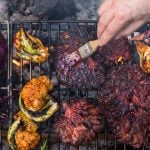
Barbecued Mushrooms Use a Revolutionary (and Delicious!) Press and Sear Technique
Looking for something new to barbecue? You'll love big cluster mushrooms cooked low and slow with this innovative press-and-sear technique.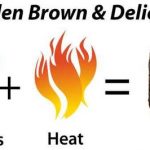
Golden Brown And Delicious: Why We Love Crust And How It’s Made
Recipes often tell you to cook food until it is browned. Why? Browning is flavor! Read on to find out how it all works.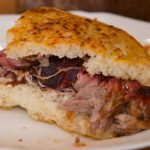
What is Bark, and Why It Makes Us Howl for More
Bark is that crusty surface on cooked meat, and for many of us, the best part. Find out how to get better bark on your ribs and pork.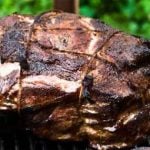
What Causes The BBQ Stall: It’s Not What You Think
Large hunks of BBQ meat have this nasty habit of rising to 150°F and then stopping. But what causes the BBQ stall? It's not what you think!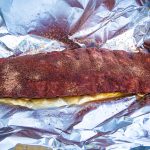
The Texas Crutch: Wrap In Foil Or Butcher Paper To Tenderize And Speed Cooking
Here's a useful technique for tenderizing, moisturizing, and speeding cooking by wrapping meat in aluminum foil for an hour or two.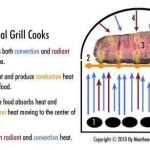
Myth: If You’re Lookin’ You Ain’t Cookin’
It turns out that opening the lid may not have a huge effect on the grill's ambient temperature. Learn about all the variables here.
Strategies for Using BBQ Sauces
Here's what you need to know about when and how to use BBQ sauce. Find out when not to apply BBQ sauce, and how to avoid burnt sauce.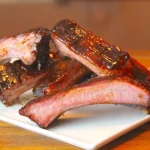
Master the Art of Smoked Ribs with These 8 Simple Tips
We know sometimes you want to see the highlight reel instead of watching the whole game. Here are the 8 key steps you need to take.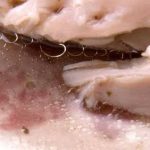
Myth: Chicken Is Ready When the Juices Run Clear
Many recipes say to cook poultry 'until the juices run clear'. If you do, you could end up overcooking it or spending the night on the toilet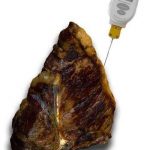
Myth: Stabbing Meat with a Thermometer, Fork, or Knife Will Drain it of Vital Juices
Does poking meat drain all its juices? No. A piece of meat is not a water balloon. If you test it with a thermometer, its juices won't drain.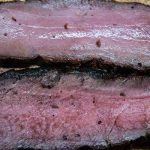
Myth: You Can Tell Doneness By Cutting Meat To Check The Color
Is meat color an accurate indicator of doneness? Here's everything you need to know about meat color and doneness.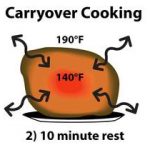
Carryover Cooking: A Problem or Much Ado About Nothing?
What is carryover cooking? How long does carryover cooking continue? Here are all the variables you need to know.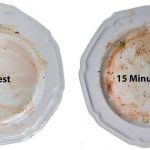
Resting Meat: Why I Think It Is A Mistake, And Why I think Holding Some Meat Is A Good Idea
Stop worrying about resting meat after it's cooked. Serve it hot. We bust this myth with a review of scientific research and tests of our own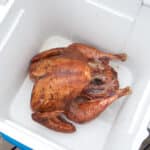
A Faux Cambro Can Save Your Butt, Turkey, And Save Face
How do caterers hold cooked meats safely for so long? It's called a hotbox or Cambro and you can make a faux one with a simple beer cooler.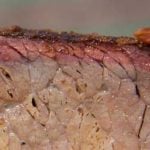
Mythbusting the Smoke Ring: No Smoke Necessary!
Smoked meats often have a pink layer below the surface called the smoke ring. But you don't need smoke to create it!
The Split Cook: Cook Today, Serve Tomorrow, The Wozniak Way
If you must cook your meat in advance and serve it the next day, here are some useful tips, courtesy of award-winning pitmaster Mike Wozniak.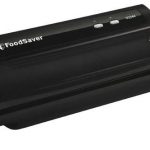
Freezing and Reheating Leftovers
Don't throw it away! Leftovers are just future meals waiting to happen. Here's what you need to know about freezing leftover meat.Tailgate Like a Pro Thanks To Our Amazing Recipes And Tips (25 Recipes, 5 Pages, 4 Articles)
Here's your ultimate guide to the gear, the recipes, and the planning tips that will make your next party in the parking lot the best ever.
Carving Makes a Difference in Tenderness and Appearance
You can ruin a perfectly cooked piece of meat by carving it horribly. Why? Because meat consists of long parallel muscle fibers.
Hamming it Up: A Survey of the World’s Great Hams And How To Cook Them
There are many different types of ham around the world, but they all fall into three categories: Fresh ham, dry-cured ham, and wet-cured ham.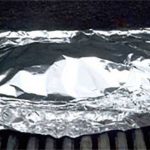
Beware Of The “Lasagna Cell”: The Danger Of Food And Metals
My foil-wrapped lasagna has holes in the foil: what's going on here? Here's what you need to know about how to avoid this problem.
Backroad Barbecue Beckons
Most RV kitchens are tiny. But with some planning and key pieces of equipment, you can turn our world class BBQ while traveling.Grill It In A Cast Iron Skillet (10 Recipes, 3 Pages, 2 Articles)
Here's everything you need to know about cooking with cast iron on your grill, in a campfire, and in your kitchen.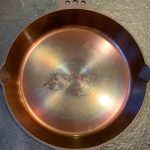
How To Season, Clean, and Repair Cast-Iron Cookware
There's only one thing to remember with cast-iron cookware: maintain the seasoning. Find out what seasoning is and how to build it up.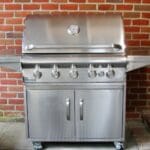
Understanding Stainless Steel
Here is what you need to know about stainless steel when buying a grill or smoker, including terms like austenitic, ferritic, and 430 steel.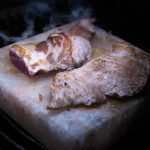
Cooking On Salt Blocks
Cooking on a salt block amps up flavor and makes a great presentation. Here's everything you need to know about cooking on salt blocks.Pizza Perfection: Everything You Need Know (9 Recipes, 2 Pages, 4 Articles)
You want to make the best pizza? Here's what you need to know from thin crust to deep dish, Naples to Rome, and everything in between.
Conditioning And Seasoning A Pizza Stone
You should condition and season a new pizza stone or baking stone before using it. Here are simple instructions on how to do it.Frying Is Best Done On The Grill! (6 Recipes, 1 Article)
Frying is a project for your grill. Here are some articles and recipes that will show you how to make great fried food on your grill.Get Griddle Grilling With These Mouthwatering Recipes (20 Recipes)
Cooking on a hot griddle, flattop, or plancha is a great way to get a flavorful sear. Here are some great griddle recipes to get you started.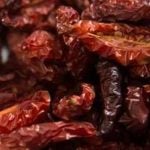
Dehydrating Meats, Peppers, Tomatoes, Fruits, Etc.
Learn about which foods you can dehydrate in a smoker for extra smoke flavor and which foods dehydrate best in an indoor electric dehydrator.Food Health And Safety: What You Are Doing Right And Wrong (12 Articles)
Hundreds of thousands of Americans alone are sickened every year by their food. Here's an overview of the hazards and how to reduce the risk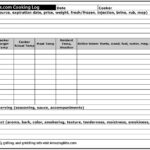
Use A Cooking Log Or Diary
Want to cook better barbecue? Keep a log of your previous cooks and learn from them. Here's the log that Meathead uses.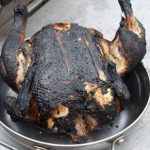
Barbecue Fubar: Some Of The Worst Outdoor Cooking Disasters
How do you avoid the worst BBQ mistakes? Here are the best of the worst cooking disasters and how to avoid them the next time you grill.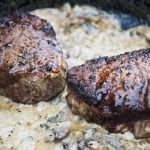
What Causes Some Beef To Have A Liver Flavor?
Some steaks have the undertone flavor of liver. There are several factors that cause it. Read on to learn about them.Ingredients and Glossaries (1 Recipe, 26 Articles)
There are subtle but important differences among salts, oils, flours, and so on. In this section we will try to explain the differences.Related articles
- BBQ And Grilling 101: A Guide To Better Live Fire Cooking (2 Recipes, 8 Pages, 18 Articles)
- Basic Meat Science For Cooks
- The Thermodynamics of Cooking and How Different Cooking Methods Work
- Grill And Smoker Setup And Firing Up (1 Page, 18 Articles)
- Salting, Brining, Curing, And Injecting (3 Recipes, 2 Pages, 6 Articles)
- Cooking Hot And Fast, Low And Slow, And The Reverse Sear Method
- Meathead’s Top 5 Meat Tips
- Buying Beef: Beef Grades And Labels, And Busting The Kobe Beef Myth
- 12 Genius BBQ and Grilling Hacks to Save You Time and Money
- Myth: The Bones Make The Meat Better
- How to Grill and Smoke Everything
- What’s A Proper Sear And Why Grill Marks Are Overrated
- Myth: Searing Steaks Seals In The Juices
- Extreme Steak: Wild And Crazy Ways To Get A Killer Sear
- How to Dry Age Steak At Home
- Myth: A Melting Fat Cap Penetrates Meat
- Myth: Let Meat Come To Room Temp Before Cooking

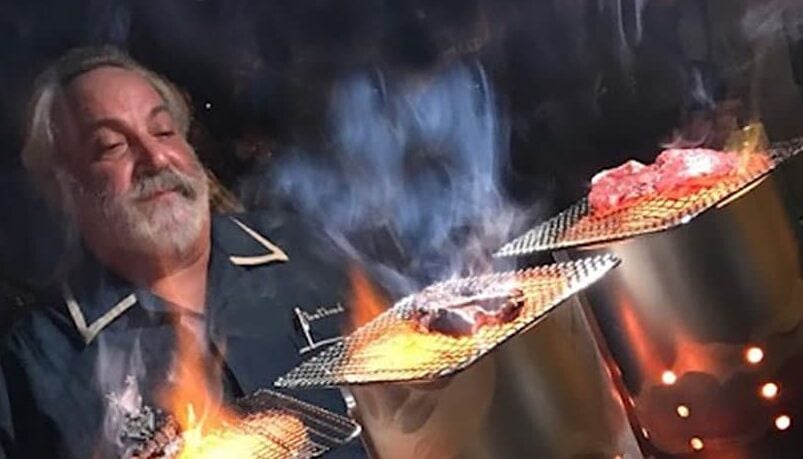
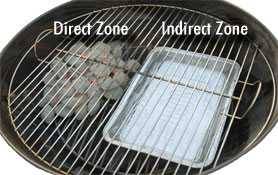

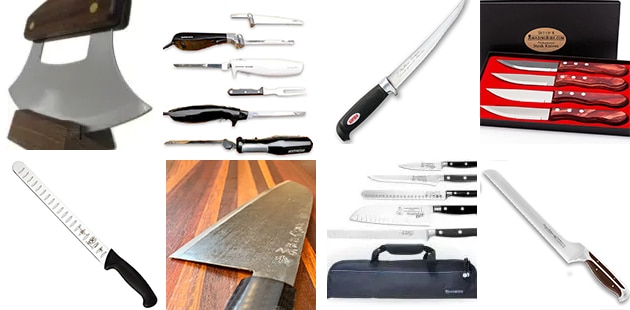
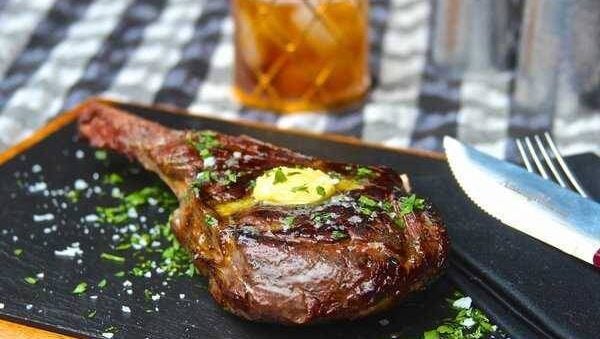

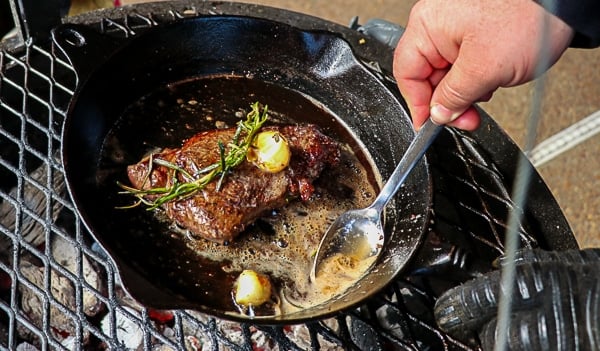
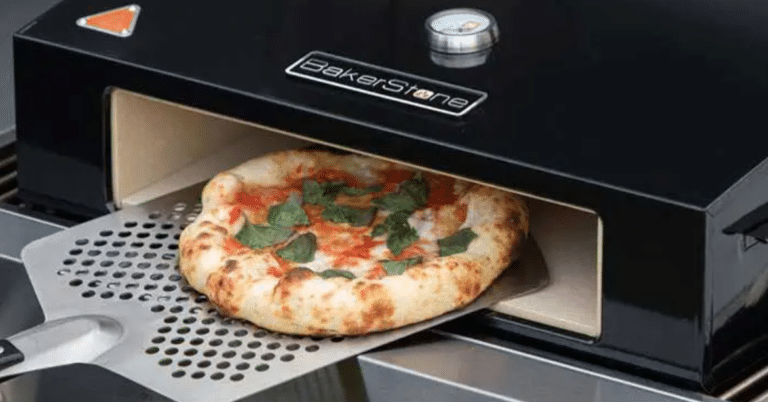
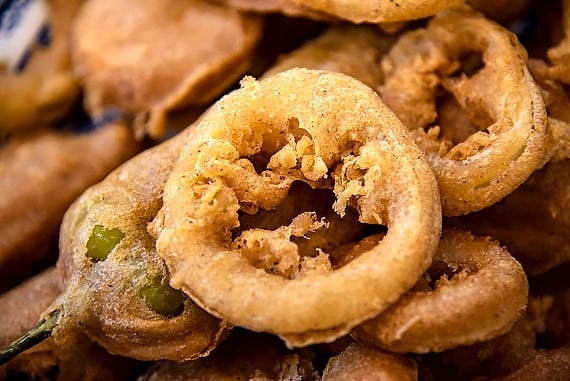
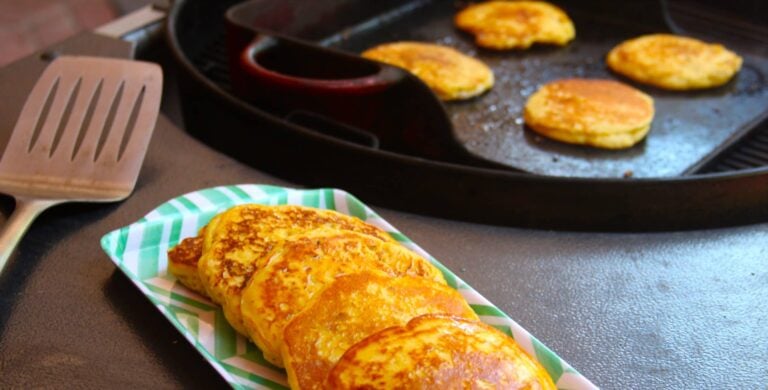

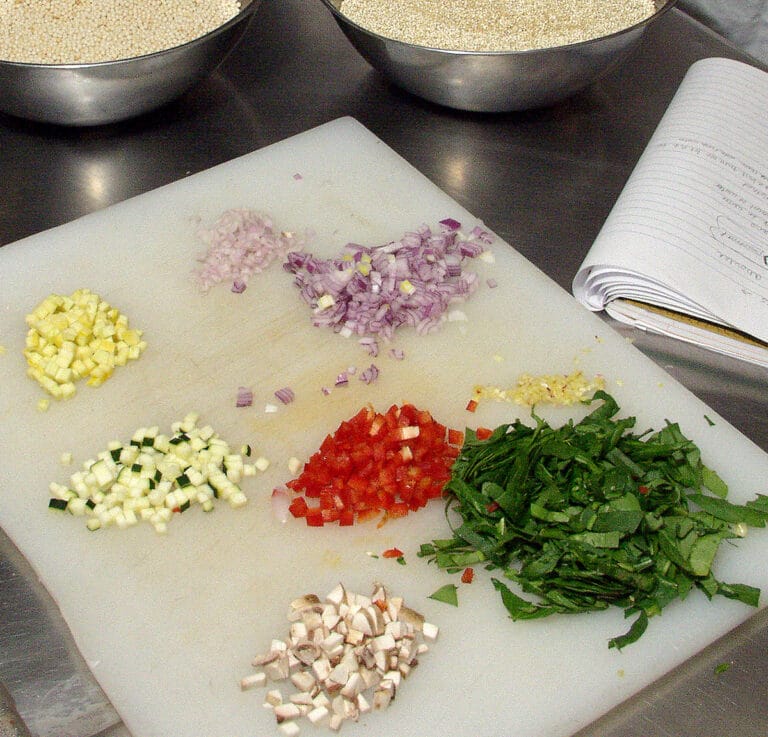

High quality websites are expensive to run. If you help us, we’ll pay you back bigtime with an ad-free experience and a lot of freebies!
Millions come to AmazingRibs.com every month for high quality tested recipes, tips on technique, science, mythbusting, product reviews, and inspiration. But it is expensive to run a website with more than 2,000 pages and we don’t have a big corporate partner to subsidize us.
Our most important source of sustenance is people who join our Pitmaster Club. But please don’t think of it as a donation. Members get MANY great benefits. We block all third-party ads, we give members free ebooks, magazines, interviews, webinars, more recipes, a monthly sweepstakes with prizes worth up to $2,000, discounts on products, and best of all a community of like-minded cooks free of flame wars. Click below to see all the benefits, take a free 30 day trial, and help keep this site alive.
Post comments and questions below
1) Please try the search box at the top of every page before you ask for help.
2) Try to post your question to the appropriate page.
3) Tell us everything we need to know to help such as the type of cooker and thermometer. Dial thermometers are often off by as much as 50°F so if you are not using a good digital thermometer we probably can’t help you with time and temp questions. Please read this article about thermometers.
4) If you are a member of the Pitmaster Club, your comments login is probably different.
5) Posts with links in them may not appear immediately.
Moderators